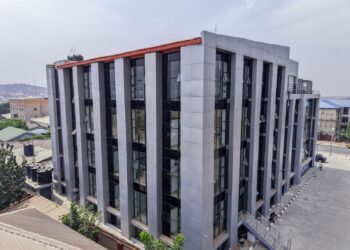Niger State Governor, Umaru Bago has appealed to the Minister of Works to revoke the Minna-Suleja road contract awarded to Salini Nigeria Ltd, citing the company’s lack of capacity.
He made the call during a town hall meeting/stakeholders engagement on the construction of 125km :3-Lanes single carriage Niger state component of the 1068km Sokoto-Badagry Superhighway in Minna.
Bago recommended HiTech and CCEC contractors, who successfully handled the Abuja-Kaduna road project, demonstrating proven capabilities in delivering quality work.
He assured the Minister of the state’s support to the President, emphasising the need for having reliable contractors to ensure timely completion of projects.
Bago also unveiled plans to establish a cement factory in Niger state, leveraging the state abundant raw materials.
In his address, Sen. David Umahi, Minister for Works, said he would take decisive actions by inviting contractors handling ongoing road projects in Niger state to a crucial meeting scheduled for Friday.
He said the development comes amidst concerns over the slow pace of work on key infrastructure projects, particularly the Suleja-Minna road, which has been under construction for 14 years.
Umahi expressed disappointment with the current state of the Minna-Suleja road, describing it as “very discouraging” during his trip to Minna for stakeholders’ engagement.
“Despite claims of 86 per cent completion the company cannot continue collecting federal funds for over 14 years without executing the project,” he said.
On the construction of 125km, 3-Lanes single carriage Niger state component of the 1068km Sokoto-Badagry Superhighway, the minister promises transformative economic benefits, boasting 68 dams, factories, and irrigation systems.
He explained that the infrastructure project, initiated by President Bola Tinubu, prioritises investment over mere legacy, aiming to stimulate growth and development across multiple sectors.
He urged people of the state to be patient and supportive of Tinubu’s vision aimed at long-term benefits of this strategic investment.
Also, Alhaji Yahaya Abubakar, Etsu Nupe and Chairman, Niger State Council of Traditional Rulers, represented by Alhaji Barau Muhammad, Emir of Kontagora urged the Federal Government to intervene in rehabilitating federal roads within the state.
Similarly, Sen. Sani Musa, representing Niger East Senatorial District, pledged to secure necessary funding for federal roads projects such as Zungeru Bridge, Tegina-Birnin-Gwari-Kaduna road and Sarkin-Pawa to Kaduna road.
Also, Mr Akin Alabi, Chairman of the House Committee on Works, urged the Federal Government to declare a state of emergency on Niger’s dilapidated roads. (NAN)











